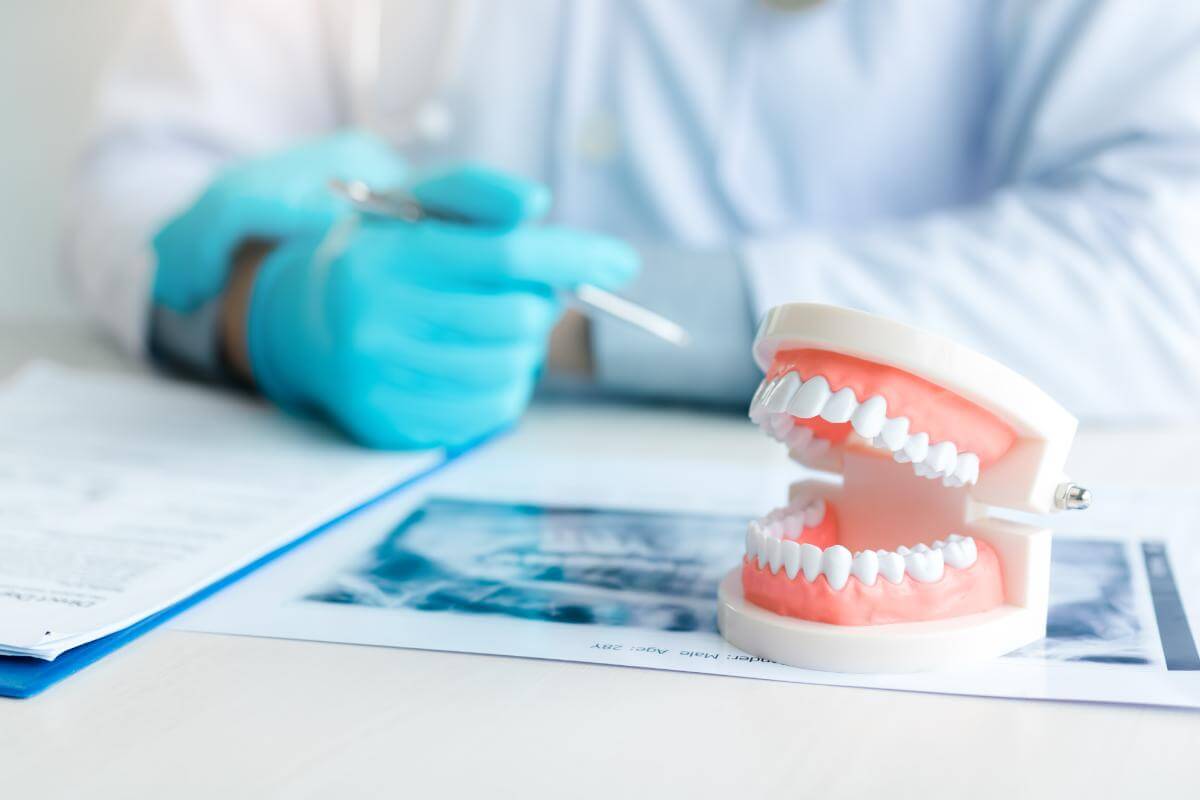Choosing the right dental dentures is vital to ensuring you acclimate to them as quickly and smoothly as possible. What exactly does that look and feel like? The dentures right for you will fit comfortably in your mouth, allow you to chew easily, and never negatively impact your ability to smile and talk. In contrast, you’ll know the wrong dentures by how bulky, awkward, and restricting they are.
Before you discover which denture type is right for you, it helps to become familiar with the different types of dentures. Supreme Dentistry is a premier dental practice dedicated to understanding the unique intricacies of your teeth and addressing your general dental needs with utmost care and precision.
We offer many options for
dentures at our Houston, Texas office. We carefully examine the inner workings of your mouth so we can provide you with the absolute best dentures possible. Learn more about our denture services by calling us at
844.966.2333.
Why Are Dentures Necessary?
There are several reasons why dentures might become necessary. The most common causes of adults losing their teeth include:
- Tooth decay that is beyond repair
- Extreme periodontal disease
- A tooth fracture that cannot be fixed
- A traumatic injury to one or more teeth
Losing a tooth can negatively impact a person’s speaking ability, physical appearance, and confidence. If multiple teeth are lost, these problems are magnified. Over time, a person can find it seemingly impossible to replace the comfort of having their original teeth.
Despite the hardships associated with tooth loss, the reality is that sometimes it is simply unavoidable. When this is the case, dentures can be an effective treatment for patients who have lost their teeth.
6 Types of Dentures
There are several types of dentures, some of which include:
1. Cantilever Bridge Denture
Like traditional bridges, cantilever bridges use only one abutment instead of two. This type of denture is an option if you have a tooth on only one side of your missing tooth. Because the denture is anchored only on one side, you’ll have a higher risk of the bridge eventually loosening.
2. Fixed Denture
Implant-supported dentures are fixed dentures that your dentist firmly anchors into your mouth’s bone tissue. The bone in your jaw fuses with the implant. Due to the support they provide, these dentures can prevent bone from further deterioration.
3. Flexible Denture
Flexible dentures are made of significantly thinner materials, such as nylon. These dentures provide increased flexibility and comfort. An added benefit of flexible dentures is that they don’t use metal parts that tend to be more visible.
4. Full Denture
Full dentures are single pieces that replace all of the lower or upper teeth. They function by resting atop your gums. Full dentures are easy to clean because they can be quickly removed without much effort.
5. Partial Denture
Instead of being permanently attached, partial dentures work by joining the original teeth. The result is that they can prevent the surrounding teeth from shifting, as isolated teeth are prone to do. Partial dentures can be taken out at will.
6. Snap-On Denture
Sometimes called overdentures, snap-on dentures are anchored by either metal posts that have been permanently attached to the jawbone or by the nearby teeth that remain.
The Difference Between Partial vs. Full Dentures
When patients lose their teeth, whether it is due to decay, gum disease, or injury, they often have the option of partial or full dentures. But what is the difference between these two prosthetic options?
- Partial dentures – A partial denture is designed to fill in gaps where only a few teeth are missing. These dentures usually consist of several artificial teeth attached to a metal or plastic framework that attaches to the remaining natural teeth.
- Full dentures – Full dentures are used when a patient has lost all their teeth. These dentures cover the entire upper or lower jaw and are secured by suction to the gums.
Both partial and full dentures have their advantages and disadvantages. Partial dentures are generally less expensive and easier to keep clean. However, partial dentures may be less stable than full dentures and can sometimes irritate the gums. Full dentures may take some time to get used to and require more upkeep than partial dentures, but they can provide a more natural-looking smile. Ultimately, the best option for each patient will depend on their needs and preferences.
What Are Anchored Dentures?
Anchored dentures, also known as implant-supported dentures, are full or partial dentures held in place by dental implants. These implants are placed into the jawbone and provide a strong foundation for the denture to attach to. Anchored dentures offer numerous benefits compared to traditional removable dentures, including:
- Improved stability and function
- Reduced risk of bone loss in the jaw
- Increased comfort and ease of eating and speaking
- Better aesthetics for a more natural-looking smile
At Supreme Dentistry, our experienced team is trained to provide our patients with high-quality anchored dentures in Houston, Texas. We will work with you to determine if this treatment option suits your needs and develop a personalized treatment plan to help you achieve a healthy, beautiful smile.
Call Supreme Dentistry to Schedule an Appointment for Dentures at Our Houston, TX Office
The entire process can feel daunting with so many types of dentures to choose from. The good news is that if you’re considering getting dentures, we at Supreme Dentistry can help. Besides fitting you with the best possible dentures, we provide all the basic and major dental care services for individuals and families. We use the most advanced technology to ensure your satisfaction, from general dental care checkups to cosmetic procedures. To learn more about the different types of dentures,
contact us using our secure online form or call us at
844.966.2333 to schedule an appointment at our Houston, TX office today.







